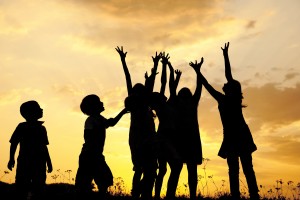 When I walk daily I intentionally “unplug”. There is nothing on my body to indicate how many steps I have taken during my four-mile walk. I listen to the birds singing and ducks honking as they make love to spring. I notice new flowers in bloom. I am at peace. Yet sometimes, today, for instance, unwanted thoughts insert themselves. Today it was the concept of “Othering”. I don’t like it and I like even less the fact that it is being intentionally used in this season’s political lexicon. It is not good news.
When I walk daily I intentionally “unplug”. There is nothing on my body to indicate how many steps I have taken during my four-mile walk. I listen to the birds singing and ducks honking as they make love to spring. I notice new flowers in bloom. I am at peace. Yet sometimes, today, for instance, unwanted thoughts insert themselves. Today it was the concept of “Othering”. I don’t like it and I like even less the fact that it is being intentionally used in this season’s political lexicon. It is not good news.
By “Othering”, we mean any action by which an individual or group becomes mentally classified in somebody’s mind as “not one of us”. Rather than always remembering that every person is a complex bundle of emotions, ideas, motivations, reflexes, priorities, and many other subtle aspects, it’s sometimes easier to dismiss them as being in some way less human, and less worthy of respect and dignity than we are.[1]
Now, picture this.
Unexpectedly, my “Othering” thoughts surrendered to the magical laughter of children playing in the park. I walked over to the brightly colored playground and watched stay-at-home mothers talk with one another while their toddlers played. I could see cultural diversity in their clothing and hear it in their conversations. A little boy who obviously had a physical disability fell and started to cry. Before his mother could reach him, one of his little girl playmates was rubbing and kissing the boo-boo on his knee. She didn’t care that he walked differently. She didn’t care that English was his second language. They could not have been more than three or four years old, yet she instinctively knew about the power of empathy.
You know where I am going with this. I wondered at what point we moderate instinctive empathic responses in our babies and introduce attitudes of “Othering”. When do they begin to respond to differences as negative rather than positive? How can we use the power of play for more than just fun? What if we used it to remind and teach and encourage us to tolerate until we understand enough to accept?
When I got home, just as a curiosity, I Googled “play and inclusion”. Would you believe I received 131,000,000 results in 0.55 seconds? There is actually a Nationally Inclusion Project, although focused on inclusion of children with disabilities, “that created a successful recreational inclusion model (play) that encourages and facilitates community inclusion while benefiting all those involved – children with and without disabilities, staff, and parents.”[2]
What if we all could see and be seen as equal to – unique, not as part of a collective group – be addressed, and spoken about, by our name – be encouraged to be ourselves – be given enough time to be culturally competent… be given the time and opportunity to understand – to be listened to, and understood.”
WOW!
What if we learned to be together, even though we are not the same? What possibilities would we uncover?
1] https://therearenoothers.wordpress.com/2011/12/28/othering-101-what-is-othering/
[2] http://www.inclusionproject.org/lets-all-play/
Until next time, remember,-
You are not alone.
-
You are not your circumstances.
-
You have everything within you to live a purpose-filled life.








